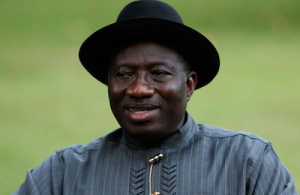It doesn’t matter whether you believe in prophecy or not, the social-economic tension that is widespread in the country will not be in any way different come 2012. If there is anything to be cautious of, it’s for you not go to sleep with your two eyes closed – this is the horoscope warning for Nigeria in 2012.
Again, President Goodluck Jonathan’s has demonstrated his lack of touch when it comes to what matters most to Nigerians. National debate around fuel subsidy removal shows that the President cannot just get it right. The problem of Aso Rock Villa is not about the ideas and policies coming out from the strategy room, but in their execution and communications; so far, the President’s team has not been helpful to his cause.
Although, President Jonathan’s economic czars have acknowledged that a majority of Nigerians still live under the poverty line, with just about $2 a day, the duo of Ngozi Okonjo-Iweala (Minister of Finance) and Sanusi Lamido Sanusi (Central Bank of Nigeria Governor) believe that removing fuel subsidy is a logical step towards improving the well being of many Nigerians. This is the biggest injustice that two highly revered economist and chief banker can do to the masses.
Yes, removing subsidy, which allows the government to increase its revenue, is a fundamental aspect of free market system, but there is no clear evident to show how such removal will alleviate Nigerians economic woes nor make government carries out its duty better, especially knowing how the government works.
First, government’s justification for this unfair economic measure is that it loses about $8 billion yearly, due to fuel subsidy. What the government failed to answer is how much of government revenue are lost to contract inflation, misappropriation of funds, ridiculous salary earnings for politicians and unproductive ministries? These losses are yet to be put in monetary terms, and the government has done very little to fix these loopholes.
Second, is the claim that oil marketers are major beneficiaries of oil subsidy and not the people. This is a serious indictment of the system. The system is broken and the government is not doing enough to fix it. Subsidy is part of any welfarist economy – even in the open-market economies. Its purpose is to minimize economic burden that citizens might face under a normal economic condition. Subsidy is important to an infant economy like ours. It is wrong to sacrifice what is needed by the majority, simply because of government failed system.
So, what does fuel subsidy removal mean for an average Nigerian? It means an increase in transportation fare, market goods and another reason to live less than $2 a day for many more years to come. The cliche that money saved from the removal of fuel subsidy will be used for better funding of education, health care and infrastructure just don’t add up.
To the President, Okonjo-Iweala and her team, what is wrong is not the fuel subsidy, it’s the broken bureaucracy that allows few privileged ones to tramp on the rights of others and exploit them for economic purpose; to remove fuel subsidy is just another of the usual quick-fix to solving major national challenges. This approach will not help the country to achieve its status and goal, as a major economy and developed society in decades to come.
Why should Nigerians trust the government to make the right investment, if given the go ahead to remove fuel subsidy? What Nigerians want is for the government to lead by examples: tackle corruption head on, stop waste in ministries and agencies, and cut back on political expenses.
It’s not too late for the President and his advisers to stop betting on Nigerians passivity and taking risks that they have no alternative plan to curtail, when their luck runs out.
Yemi Ifegbuyi is a senior editorialist and director of operations for SBG media, publisher of nigeriansbaroadlive.com. He is also a strategic communications consultant on politics and business development, with special interest in North-America, Asia and sub-Sahara Africa. Follow him on Twitter: @tweetyemi
———————————————————————————————————————————————-



I believe that the economic team led by Dr. Iweala has other worthy economic recovery roadmap for Nigeria. It is not only the removal of fuel subsidies that is seen as the only alternative to Nigeria’s economic recovery.